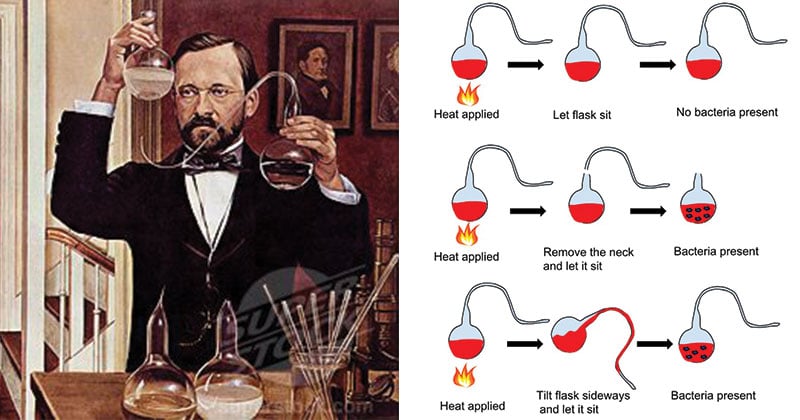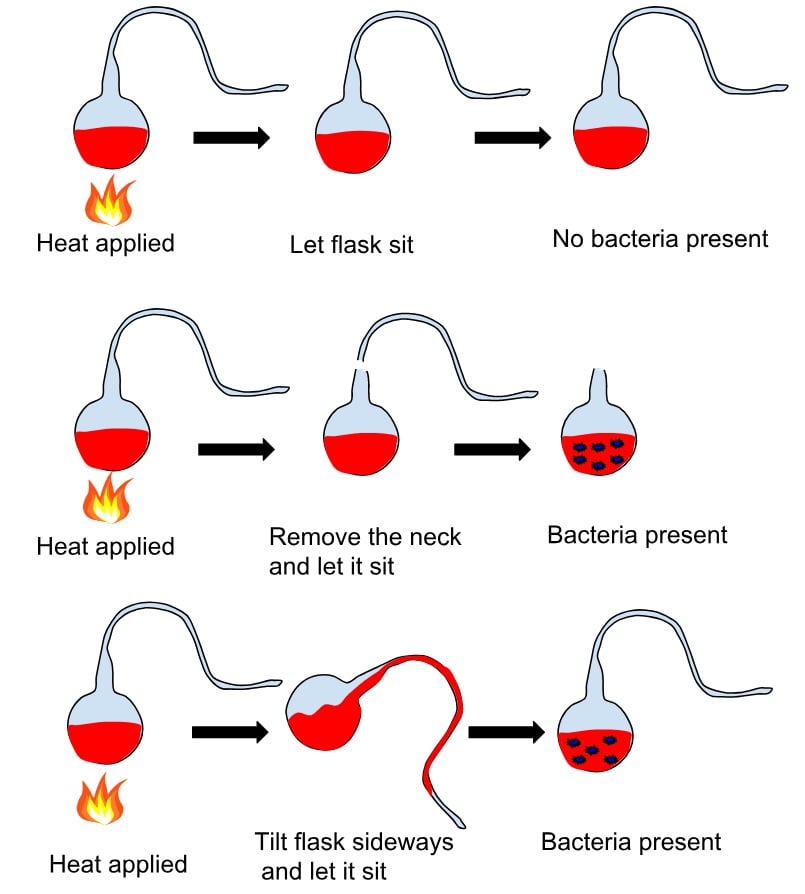- Louis Pasteur was a French chemist and microbiologist considered the most important founders of Microbiology.
- Microbiology developed as a scientific discipline from the era of Louis Pasteur (1822- 1895) himself.
- He first coined the term “microbiology” for the study of organisms of microscopic size. For his innumerable contributions in the field, he is also known as the Father of Microbiology.
- He is renowned for his discoveries of the principles of vaccination, microbial fermentation and pasteurization.
- He is remembered for his remarkable breakthroughs in the causes and prevention of diseases.
- He is regarded as one of the three main founders of bacteriology, together with Ferdinand Cohn and Robert Koch.
- Pasteur’s academic positions were numerous, and his scientific accomplishments earned him France’s highest decoration, the Legion of Honor, as well as election to the Académie des Sciences and many other distinctions.
- Today there are some 30 institutes and an impressive number of hospitals, schools, buildings, and streets that bear his name- a set of honors bestowed on few scientists.

Interesting Science Videos
Major Contributions of Louis Pasteur
The studies on fermentation led Pasteur to take interest to work in microbiology. His contributions to microbiology are as follows:
- He disproved the theory of spontaneous generation of disease and postulated the germ theory of disease: He stated that disease cannot be caused by bad air or vapor but it is produced by the microorganisms present in air.
- The doctrine of spontaneous generation was disapproved by his experiments that showed that without contamination, microorganisms could not develop.
- He proposed the principles of fermentation for preservation of food.
- He introduced the sterilization techniques and developed steam sterilizer, hot air oven and autoclave.
- He described the method of pasteurization of milk and wine.
- He reduced mortality from puerperal fever. He had also contributed for the vaccine development against several diseases, such as anthrax, fowl cholera and rabies.
- Liquid media concept: He used nutrient broth to grow microorganisms.
- He was the founder of the Pasteur Institute, Paris.
Besides in microbiology, Pasteur made significant discoveries in chemistry, most notably on the molecular basis for the asymmetry of certain crystals and racemization.
- Early in his career, his investigation of tartaric acid resulted in the first resolution of what is now called optical isomers.
- His work led the way to the current understanding of a fundamental principle in the structure of organic compounds.
Pasteur’s Experiment of the Swan Necked Flask

Figure: Louis Pasteur’s spontaneous generation experiment illustrates the fact that the spoilage of liquid was caused by particles in the air rather than the air itself. These experiments were important pieces of evidence supporting the idea of germ theory of disease. Source: Wikipedia.
- Pasteur first filtered air through cotton and found that objects resembling plant spores had been trapped. If a piece of cotton was placed in a sterile medium after air had been filtered through it, microbial growth appeared.
- Next he placed nutrient solutions in flasks, heated their necks in a flame, and drew them out into a variety of curves, while keeping the ends of the necks open to the atmosphere. These flasks looked like the neck of swans hence giving the famous experiment its name.
- Pasteur then boiled the solutions for a few minutes and allowed them to cool.
- No growth took place even though the contents of the flasks were exposed to the air.
- Pasteur pointed out that no growth occurred because dust and germs had been trapped on the walls of the curved necks.
- If the necks were broken, growth commenced immediately.
- By this Pasteur proved that all life even microbes arose only from their like and not de novo (germ theory of disease). Pasteur had not only resolved the controversy of origin of microorganisms but also had shown how to keep solutions sterile with this one single experiment.
References
- Parija S.C. (2012). Textbook of Microbiology & Immunology.(2 ed.). India: Elsevier India.
- Sastry A.S. & Bhat S.K. (2016). Essentials of Medical Microbiology. New Delhi : Jaypee Brothers Medical Publishers.
- Murray, P. R., Rosenthal, K. S., & Pfaller, M. A. (2013). Medical microbiology. Philadelphia: Elsevier/Saunders
- https://www.britannica.com/biography/Louis-Pasteur/Research-career
- https://www.biography.com/people/louis-pasteur-9434402

“He proposed the principles of fermentation for preservation of food.” ???
He proposed the principles of pasteurization for preservation of food.